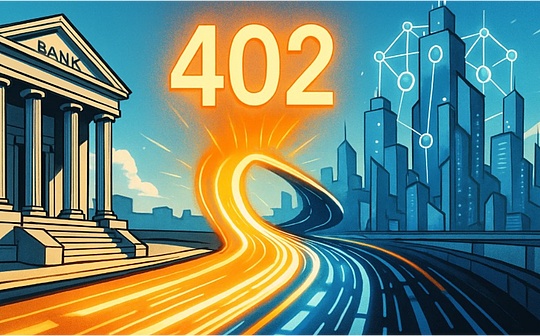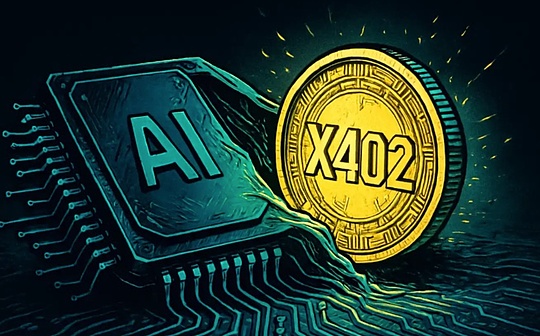
Author: Lawyer Chen Shanghai
As one of the fastest expansion of the current African Web3 market, the development prospects of the Web3 market in Nigeria is very considerable.At present, more and more Nigerians have tried to find a new value storage method in an unhealthy economic environment. Nigeria is populated, young and interested in emerging things.Development.
Nigeria’s web3 supervision is under dynamic development.As early as 2021, the Nigerian Central Bank (CBN) was explicitly banned commercial banks from providing convenience for cryptocurrency transactions to curb the issues related to money laundering and terrorist financing related to newborn cryptocurrencies.
However, with the further high development of the Web3 market, the new regulatory rules have been introduced immediately.In 2022, the State of the Securities and Exchange Commission (SEC) released the “Digital Assets Sale Platform and Custody Rules”, which provided a guidance policy for the virtual currency transactions and custody of cryptocurrency exchanges and custodian agencies.In 2023, the “Nigeria Treasury Act 2023” was launched, requiring 10%of capital profits tax on cryptocurrency transactions, and further strengthened the supervision of cryptocurrency transactions.Asset category 1.
Affected by factors such as insufficient financial services, high inflation, depreciation of national currency, and younger population, the adoption and transactions of cryptocurrencies have grown rapidly in Nigeria.Although cryptocurrencies are not recognized by CENTRAL Bank of Nigeria, the use and transactions of cryptocurrencies are growing rapidly in Nigeria.
In 2021, the Nigerian Central Bank banned commercial banks from participating in cryptocurrency transactions, but there was no legal or clause to use cryptocurrencies as crimes.Therefore, cryptocurrencies have been widely traded on Nigeria cryptocurrency exchanges, and point -to -point transactions are also very popular.
In May 2022, the Nigerian Securities and Exchange Commission (SEC) issued regulations on digital assets, incorporating cryptocurrencies into its regulatory scope.According to these regulations, the cryptocurrency exchanges operating in Nigeria must obtain permission from the securities trading committee and abide by certain requirements.The regulations also define digital assets and clarify the legal status of digital assets in the country.
1. Nigerian web3 market status quo
Relevant data shows that the development speed of the Nigerian cryptocurrency market is leading in Africa:
1. Transaction volume:
A report from the well -known blockchain research company Chainalysis in September 2023 showed that Nigeria’s cryptocurrency trading volume increased by 9%year -on -year, reaching $ 56.7 billion from July 2022 to June 2023.This amazing growth rate exceeds other major African cryptocurrency markets such as South Africa, Kenya, Mauritius, Ghana, and Tanzania.
In addition, PAXFul, a point -to -point cryptocurrency trading platform, has also listed Nigeria as its largest African market.As of October 2023, more than 60% of Nigeria’s PAXFUL trading volume in Africa further demonstrated its dominant position.
2. Market -driven factors:
(1) Economic challenges: Nigeria’s economy is in trouble, the currency is weak, and the inflation rate is high, which has prompted the Nigerians to turn to the currency of Bitcoin and the stable currency linked to the US dollar.
(2) High web3 consciousness: The survey results released by American blockchain software company Consensys and British data analysis company YOUGOV showed that Nigeria is the country with the strongest cryptocurrency consciousness in the world, reaching 99%.This proportion exceeds developed economies such as Britain, the United States, Japan, and Germany.The global average is 92%.3
(3) Supervision trend: Nigeria recently adopted regulatory measures, Nigeria Central Bank (CBN) virtual asset service provider (VASP) guidelines, although it is still developing, it provides a certain degree of clarity and encourages cryptocurrencies to encourage cryptocurrenciesThe market grows under supervision.
3. Compared with other African markets:
Although South Africa has more developed financial infrastructure and a larger cryptocurrency market size, its growth rate lags behind Nigeria.
In addition, Kenya still occupies an important position in the cryptocurrency market, but its recent activity has declined due to the uncertainty of supervision.
2. The development potential of Nigeria web3
Nigeria has young people who are young and interested in new technology, and the penetration rate of smartphones is very high.Nigerians aged 18 to 34 account for 26.6%of the total population.Nigeria currently has a population of 226.7 million, of which 60.3 million years are light, more than the total population in many countries.Even so, Nigeria’s median age is 17.2 years, and the median age of the African continent is 19 years.
This creates fertile soil for the use of encrypted applications and services based on mobile technology, and its development potential is endless, including the following:
-
Technology acquisition ability: Nigeria is the country with the highest popularity in African smartphones, and more than 40% of the population has smartphones.According to Statista, by 2025, this proportion will increase to 66%, that is, more than 140 million people.This technological penetration rate makes it easier for Nigerians to accept new technologies such as cryptocurrencies.
-
Internet usage is high: Nigeria has the largest Internet user base in Africa, with more than 120 million users.Extensive Internet access allows young people in Nigeria to easily obtain cryptocurrency information and participate in the cryptocurrency market.
-
Looking for alternative investment: Because the inflation rate hovers around 29%, the Nigerians are looking for alternative investment to hedge inflation and achieve wealth growth.Although cryptocurrencies are unstable, they have the potential of high returns, attracting young Nigerian young people.
-
Entrepreneurship: Nigerians are famous for their entrepreneurial spirit and willingness to bear risks.This makes them willing to accept emerging things such as cryptocurrencies and stabilization because they regard them as potential opportunities.
-
Increased transaction volume: Nigeria is one of the countries with the highest volume of cryptocurrencies in Africa, and young people account for a large part of traders.According to CoinMarketcap’s report on the use of cryptocurrencies in 2020, Nigeria’s young cryptocurrencies users increased by 210.6%4.
-
Decentralization Finance (DEFI) is becoming increasingly popular: decentralized finance (DEFI) is becoming more and more popular among Nigerian young people. They have been attracted by earning passive income and participating in the potential of non -allowable financial systems.
-
The growth of the beginning of the initial founder: start -ups in the field of Nigeria encryption are booming to meet the needs of young encrypted enthusiasts.These startups are developing innovative products and services, such as cryptocurrency wallets, exchanges and education platforms.
-
Dialogue inflation: Nigeria’s inflation rate has reached a new high in 27 years, which is the main problem that makes people worry about.Traditional savings accounts have a meager income and can easily erode by inflation.Stable currency provides a safe haven for investors seeking savings and preservation.With the sharp decline in Nara’s exchange rate on the US dollar, in the past 12 months, Nara depreciated 47%, and stable coins are becoming a better choice.
-
Lower transaction costs: Compared with more volatility such as Bitcoin, the trading cost of stablecoin is much lower.This has made them an ideal choice for daily transactions and small payments, attracting retail investors who want to use cryptocurrencies for daily purchases.
-
The portal of DEFI: Decentralization Finance (DEFI) application is completely changing financial services, and users can loan, borrow and earn interest without intermediary agencies.Tether (USDT), USD Coin (USDC), and Binance USD (BUSD) are the lifeline of DEFI, enabling Niger to participate in these innovative financial services.
-
Easy -to -use and stability: Stable currency provides a familiar experience for users who are accustomed to using traditional legal currencies.Compared with other cryptocurrencies that fluctuate, the price stability of the stablecoin has made new investors no longer daunting.
-
Cross -border payment: Compared with traditional transfer, stablecoins can promote faster and cheaper cross -border payment.This is particularly beneficial for Nigerians who receive remittances or carry out international business.
-
Based on a stable coin payment platform, users allow users to use stable currency to pay goods and services to promote the widespread application of cryptocurrencies.
-
The small loan platform driven by stable currency uses stable currency as a mortgage to provide small loans to Nigerians with insufficient bank accounts to promote financial inclusiveness.
-
The stable currency investment product that can generate income allows investors to earn passive income by holding stable coins to further increase the attractiveness of stable currency.
In addition, the impact of young people on cryptocurrency applications also include:
Third, the development of Nigerian stable currency
In the field of vibrant Nigerian cryptocurrencies, stabilization coins are rapidly rising, becoming the preferred tokens for retail investors.
The main reason is as follows:
Therefore, in recent years, the Nigerian government has been committed to the development of the stable currency market.According to a notice issued by the Nigerian Central Bank earlier, the Nigerian Bank, Fintech Corporation and Blockchain Corporation are working together to create a stable currency called CNGN for Nala.
It is expected that the CNGN token will follow the functional design of the stable currency popular currency popular in Nigeria, and participate in market competition.This function will enable it to extend its function to regions outside Nigeria and promote the smooth progress of global transactions.
Stable currency is becoming more and more popular, and it has promoted the innovative wave of Nigerian cryptocurrencies. Therefore, startups are seeking:
Fourth, Nigerian web3 specific regulatory policy
At present, the Nigerian government has approved a national blockchain policy as part of its efforts to transform into the digital economy.The policy aims to create an economy driven by blockchain, supporting security transactions, data sharing, and security transactions, data sharing and value exchange between people, corporate and enterprises, and government and government.Although the policy documents have not yet been made public, the government has instructed regulatory agencies, including the Nigerian Central Bank and the Securities Exchange Commission (SEC) to formulate regulatory documents in order to deploy blockchain technology in various departments of Nigeria.
The release of the national blockchain policy reflects Nigeria’s increasing interest in blockchain technology and the recognition of the potential of blockchain technology to promote economic development.Nigeria has become one of the fastest countries in the world’s use of digital assets. Its population is used for various purposes, including remittances and online transactions.
The government’s actions embracing blockchain technology show that it is now seeking to use its advantages and support the corresponding supervision policies for the application of blockchain technology.This is essential for attracting investment and promoting the development of Nigerian blockchain ecosystems.The participation of regulatory agencies such as the Central Bank of Nigeria and the Securities and Exchange Commission shows that the government has taken into account the potential impact of blockchain technology on the Nigerian economy, and recognizes that it is necessary to supervise the development of the market.Stable and investor protection.
In addition, the Nigerian government intends to approve the establishment of a multi -department guidance committee to supervise the implementation of the blockchain policy.The guidance committee will play a key role in coordinating and promoting cooperation between different departments and between other stakeholders.
In addition, in May 2023, the Nigerian government approved a national blockchain policy as part of the country’s efforts to transform into the digital economy.According to a statement issued by the Federal Communications and Digital Economics on Twitter: “The vision of the policy is to create a economic transaction, data sharing and value exchange between individuals, enterprises and governments, and support individuals, enterprises and governments.So as to enhance everyone’s innovation, trust, growth and prosperity. “
According to Bloomberg, Nigeria SEC is considering allowing tokens to issue tokens with equity, debt or property (but “not cryptocurrency) on the licensed digital asset exchange.
In general, the introduction of a series of policies of the Nigerian government shows the government’s expectations of embracing blockchain technology and using its potential to promote economic growth and innovation.








